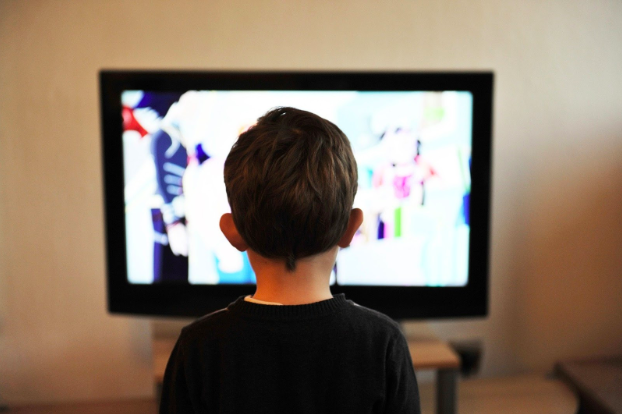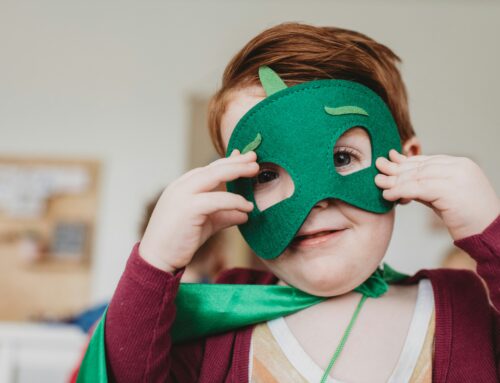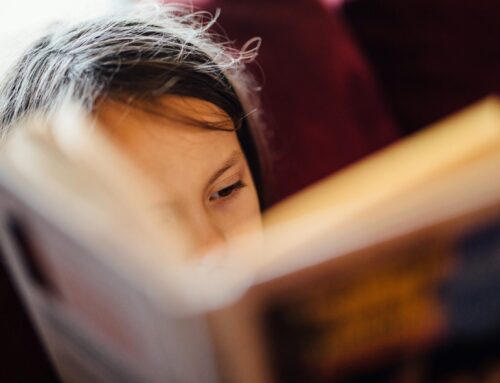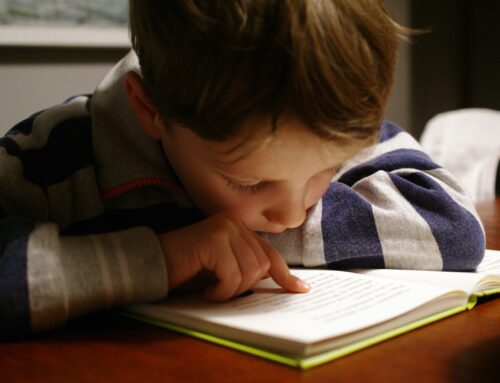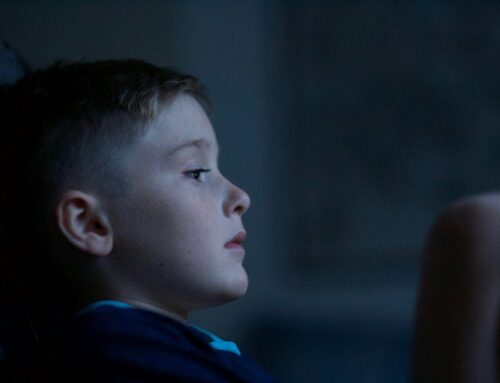The impact of reading on brain development is a topic that has been researched for decades. Now that smartphones and tablets are more likely to be placed in the hands of a young child than a book, research has also been taking a look at the impact of screen time on developing brains. The result has been a flurry of sometimes contradictory research. On the one hand, high quality programming can potentially be beneficial for children preschool age and older. On the other hand, low quality programming or too much programming can negatively affect children of any age. There is also the problem of introducing media too early in a child’s life.
What are the Official Screen Time Recommendations for Children?
Currently, the American Academy of Pediatrics and The World Health Organization both recommend against screen time for children younger than 18 months to 2 years old.(1),(2) Even once a child turns 2, both organizations recommend that screen time be severely limited in favor of physical and imaginative play, as well as non-screen activities like reading books. It is also suggested that parents view any screens with their children, helping them relate the images and sounds to the real world around them.(1)
It is important to remember that, especially for children younger than age 2, screens are increasingly shown to be little more than bright lights and sounds to them. They cannot understand the television program or other production that they are watching. They won’t properly understand media programs until they are at least preschool age. Even programs marketed to babies — programs that specifically claim to promote intelligence — seem to have a negative impact on brain development.(3)
For school age children, parents are still encouraged to place time limits on media.(1) Screen time shouldn’t take the place of sleep, activity, and a generally well-rounded childhood.
New Neurobiological Research on the Brain and Screens
A recent study done by the Reading and Literacy Discovery Center of Cincinnati Children’s Hospital is shedding even more light on the impact that screens have on early brain development.
The study’s authors released images of MRI scans that were conducted on 47 preschool children for research. In the brain, fibers known as white matter are responsible for essential functions, particularly communication. The researchers found that children who spent at least two hours a day focused on screens had less white matter development and organization. Children who were often read to had the opposite effect; the white matter in the language centers of their brains were highly organized and well-developed.(4)
The researchers also gave the children tests to further assess any potential differences between children who regularly heard books and children who spent a lot of time using screens. The study found that the children who spent more than an hour a day using screens had poorer performance on measurements of expressive language and literacy skills.(4) Children who were read to, meanwhile, showed higher performance on the tests. The study’s lead author, Dr. John Hutton, told CNN Health, “We found essentially the opposite effects of screen time…It does seem to be very localized in the sort of classic language and imagery tracks that are more directly relevant to reading.” (4)
Balancing Screen Time and Books
Minimizing and managing screen time isn’t always easy, especially for parents of young children. While you may not find it realistic to avoid screens entirely, you can still take specific steps to help positively develop your child’s brain development. Try some of the following tips:
- Read to your child early in life and continue to read often.
- Don’t worry too much about what material to read to your child.(4) Children benefit from hearing diverse language. Reading your own favorite novels or magazines is just as effective as reading a classic children’s book.
- As much as possible, try to keep children under the age of 2 away from screens. Instead, encourage play, exploration, outside experiences, and face-to-face interactions. For preschool aged children, try to limit screen time to an hour a day or less of quality programming. Sesame Street and Daniel Tiger’s Neighborhood are examples of television shows that have been shown to positively impact preschool children.5 For older children, come up with a family media plan that details how much screen time will be allowed each day.
- If your older child seems to be struggling with reading, talk with a professional about the potential for dyslexia, a common reading disorder. Diagnosing dyslexia early in life can lead to more effective interventions and higher self-esteem for your child.
Concerned About Your Child’s Development?
Neurobehavioral Associates regularly provides comprehensive neuropsychological assessments and consultations for children with suspected learning, neurodevelopmental, or attention differences. We’ll form an appropriate intervention plan to guide your child on the path to success. Contact us today to schedule an appointment or to learn more about how our team can assist your family.
References:
- American Academy of Pediatrics Announces New Recommendations for Children’s Media Use. (2016, October 21). Retrieved January 17, 2020, from https://www.aap.org/en-us/about-the-aap/aap-press-room/Pages/American-Academy-of-Pediatrics-Announces-New-Recommendations-for-Childrens-Media-Use.aspx
- Bowden, E. (2019, April 24). WHO releases guidelines on screen time for children. Retrieved January 17, 2020, from https://nypost.com/2019/04/24/who-releases-guidelines-on-screen-time-for-children/
- Park, A. (2007, August 6). Baby Einsteins: Not So Smart After All. Retrieved January 17, 2020, from http://content.time.com/time/health/article/0,8599,1650352,00.html
- LaMotte, S. (2020, January 16). This is your child’s brain on books: Scans show benefit of reading vs. screen time. Retrieved January 17, 2020, from https://www.cnn.com/2020/01/16/health/child-brain-reading-books-wellness/index.html
- Miller, Z. (2019, July 8). 10 shows for kids that are actually educational. Retrieved January 17, 2020, from https://www.insider.com/educational-shows-for-kids-that-will-help-them-learn-2019-7

